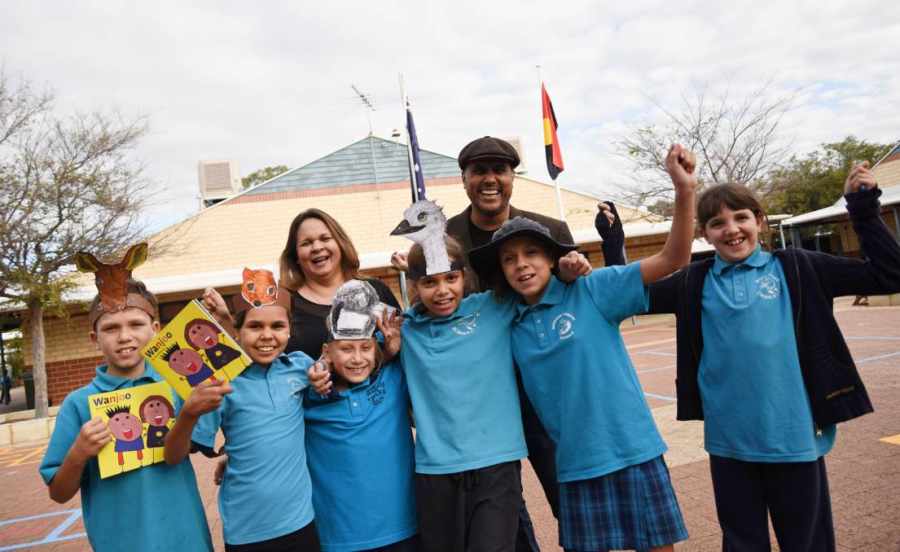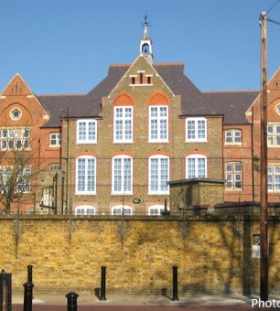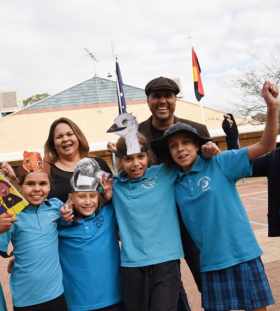Riverside Primary School | A Detailed Overview
Riverside Primary School is a school for students of age ranging from 3 to 11 years. It is one of the most renowned schools in England. Also, it is listed among the top 20 schools in the consecutive three years. It shows that it is a highly result-driving school. Besides, the visitor says that the staff is very friendly and compassionate, making it an enjoyable place to visit and work. The school is in the vicinity of the scenic River Thames and Tower Bridge. Riverside Primary School is a community school where students from different backgrounds and cultures learn a better outlook towards life.
Table of Contents
The School As A Diverse Community
Riverside Primary School has over 300 children who come each day to Riverside. There are 12 classes in the school – all named after boats, so you will often hear people talking about “canoes” or “kayaks”! There are 45 children for each of the seven-year groups in the schools. The organization of the classes occurs by age, and everyone changes class in September each year. The school has a blue and white school uniform and a special school logo. Besides, there are many different nationalities at Riverside. Everyone is friendly and helpful and respects each other. There are prefects to help new children and a parents’ group who get involved in school events and talk to teachers and each other.

PC: https://www.mandurahmail.com.au/
Assessments At Riverside Primary School
There are two different types of assessments that happen at Riverside:
1: Formative Assessments
Formative Assessments are continuous and help teachers to know the level of your child’s progress. It allows teachers to support their progress to the next level. Formative assessments happen every day by every teacher. The assessments take to modify teaching and learning activities and improve attainment.
2: Summative Assessments
Summative Assessments are those that signpost a child’s attainment, usually at the end of a learning stage. The comparison occurs against standards or benchmarks. These assessments are the type that parents often hear about and know – SATs, work samples, and any tests are summative assessments.
The results of summative assessments in Key Stage 2 are published each year and compared to other schools nationally. For many years, results have shown that Riverside is above the national average.
Curriculum For Pupil
A creative and balanced curriculum means everyone can achieve, enjoy learning and prepare you for the future ahead. The school aims to provide an environment that supports and encourages investigation and curiosity – a crucial part of early education.
Learning in the Foundation Stage is a balance of direct teaching, games, and play. The Nursery and Reception classes have dedicated outdoor areas. There are opportunities to work with the teacher, to practice independently what has been taught, and to play in and out of the classroom using all the available new skills.
Each teacher is responsible for planning and delivering lessons and organizing activities that follow the requirements of the curriculum and are personalized to each child. This ensures knowledge and understanding, even at an early age, builds on previous learning and supports each individual’s progress.
Speech and Language are vital areas of development in all phases. Students can get the foundations for this in the Nursery and Reception classes. Good speaking and listening skills are crucial to learning now and in the future.
1: Reading and Phonics
Time for reading and listening to stories is a crucial feature at Riverside every day. These are times when students can read their favorite books and find new favorites. There is an Oxford Reading Tree scheme in school. However, it is not the only book for the students.
2: Assessment
At the end of the Reception Year, statutory assessments are completed for every child in school – these are not tests; they are teacher assessments made by the people who know them best in school – their class teacher.
3: Educational Visits
Riverside Primary School is in an exciting part of London that has so many excellent resources for teachers to use to make learning exciting and fun. Planned visits are part of what it does, visiting places of interest while learning new skills; being so close to the River Thames means just a walk to the end of the road can launch a whole unique discovery experience.
4: The Foundation Stage Curriculum
While there is a separate curriculum for the Foundation Stage, at Riverside, the Nursery and Reception Classes are not different and are part of the whole school. They have Reading and Maths practice to work on at home. Pupils attend assemblies, participate in performances, join in with workshops, and are expected to represent Riverside in and out of school the same as all other pupils and uphold the school’s ethos and values.
Learning For Pupils With Disabilities Who Need Special Attention
Their roles are to support all staff to develop effective strategies and programs for children with Special Needs and/or Disabilities. Every member of the team has a responsibility to support pupils and families with additional needs by promoting inclusion and ensuring equality of opportunity for all.
Assessment of the children is crucial in creating a plan of action that best suits their needs. Working with families to access support and advice as well as sharing information also plays a crucial role in the program designing. Besides, discussing individual targets and ways forward and calling on specialists and health professionals also help in the program.
The special care of these special children include:
- Managing the in-school support services, such as Speech and Language Therapist and Occupational Therapist.
- Liaison with external support agencies,
- Liaison with parents of children with Special Needs and/or Disabilities
- Developing and overseeing the program for each child.
- Liaison with and providing support to teachers and teaching assistants.
- Providing and contributing to training for teachers and teaching assistants.
- Managing the record-keeping for all children with special needs
- Inclusion is a crucial component at Riverside Primary School. Pupils learn best when all work together. It can also strengthen the bond between pupils, professionals, and parents.
Ensuring that all pupils are able to access the curriculum and enrichment opportunities is paramount. Everything happens here to fulfill this objective.
Children’s Safety
Riverside Primary School is committed to safeguarding and promoting the welfare of children and expects all staff, volunteers, and families to share this commitment – everyone has a role to play in protecting children. Riverside Primary School has policies and procedures in place that contribute to its safeguarding commitment, including Child Protection Policy which can be viewed in the Policies section of this website.
All staff has completed Prevent training, and an Emergency Response Policy is in place for all staff to follow in case of a severe incident. Members of staff have a duty to safeguard all children and promote their welfare. If a member of the team is concerned about a child’s welfare, they will record their concern, and any observations or conversation heard and report to the Designated Person as soon as possible on the same day. In order to fulfill this duty, Riverside Primary School shares information and works in partnership with other agencies when there are concerns. The school strives to make every effort to discuss its concerns with parents first unless it has reason to believe that such a move would be contrary to the child’s welfare.
Final Words!
This post elaborates on some essential aspects of the Riverside Primary School that parents need to know. For more educational blogs, visit our blog section.

 Tagged:
Riverside Primary School, Riverside Primary School Curriculum, Riverside Primary School Fees
Tagged:
Riverside Primary School, Riverside Primary School Curriculum, Riverside Primary School Fees
